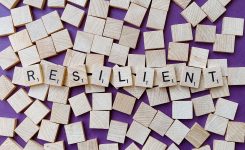E-News, coesione, cooperazione, In Evidenza, Ultime Notizie, Notizie
VASU GOUNDEN*: città ponti dell’accordo sociale
Abbiamo gestito conflitti in Africa da oramai 28 anni a questa parte. La nostra previsione è che il terreno dei conflitti si sposterà verso le aree urbane, grazie anche ad una rapida crescita della popolazione che confluisce nelle grandi città e che esercita una pressione forte sull’occupazione, sulle infrastrutture, sull’accesso alle risorse idriche e igieniche.
Questa è la nostra prospettiva per i paesi in via di sviluppo, particolarmente per l’Africa. Il focolaio del Covid-19 potrebbe svilupparsi anche in altri paesi, già sviluppati, perché abbiamo visto che la pandemia ha velocizzato una serie di crisi: sanitaria, economica e ora abbiamo registrato conflitti in 55 paesi africani dall’inizio del lockdown ed in Sud Africa intorno alla prima settimana di marzo. Riteniamo che sia la crisi sanitaria che quella economica precipiteranno in una crisi di sicurezza che, a sua volta, scatenerà una crisi umanitaria.
Quindi, temiamo di vedere una convergenza di alcune queste crisi che creeranno un quadro particolarmente complesso da affrontare. Non riteniamo che solamente il mondo in via di sviluppo affronterà questa situazione, lo abbiamo visto negli Stati Uniti e anche in molte altre regioni del mondo: ci sono elementi di vulnerabilità che porteranno a una destabilizzazione della sicurezza della salute ovunque nel mondo.
Secondo punto; per risolvere questi conflitti dobbiamo concentrarci sulle cause per poterli affrontare debitamente. Gli SDGs, come sappiamo, sono stati concepiti per affrontare le cause ultime di queste sperequazioni. Il Covid-19 ha messo nuovamente tutti i livelli istituzionali (Stato centrale, regionale o locale) ancora una volta al centro dello sviluppo, non solo quindi più il settore privato.
Lo Stato adesso non è più solo un facilitatore, un creatore di un ambiente favorevole allo sviluppo, ma anche un motore, un importante attore per i progressi della società civile.
Le città sono quel livello di governo che eroga i servizi ai cittadini e, in quanto tale, deve fungere da ponte in questo accordo sociale per far sì che il pubblico e il privato lavorino insieme per affrontare le cause ultime delle disuguaglianze, della povertà e questo mi porta al mio ultimo punto ossia che le città cresceranno fino a diventare il livello più importante di governo e di controllo.
Le autorità municipali dovranno concentrarsi su quanto è più importante per i propri cittadini e perseguire con vigore i propri interessi locali. In un mondo interconnesso ma sempre più polarizzato da nazionalisti con interessi ristretti, è importante creare un sistema di valori condivisi da tutelare, ossia la coniugazione tra responsabilità globale e interessi locali.
Dobbiamo pensare a come rafforzare il multilateralismo in un contesto di globalizzazione. Non dobbiamo dimenticare che la globalizzazione è iniziata e temo che non finirà mai.
Certo, adesso si parla di localizzazione, ma credo che abbiamo tutti un imperativo e il Covid-19 ci ha mostrato che i problemi e le difficoltà del futuro saranno globali e pertanto nel perseguire i nostri interessi nazionali o locali (e giustamente lo facciamo), lo dobbiamo fare con un senso di responsabilità globale.
*Executive Director of the African Centre for the Constructive Resolution of Disputes (ACCORD)
We have managed conflicts in Africa for 28 years now. Our prediction is that the terrain of conflict will shift to urban areas, thanks in part to rapid population growth flowing into large cities and exerting strong pressure on employment, infrastructure and access to water and sanitation.
This is our perspective for developing countries, particularly Africa. The Covid-19 outbreak could also develop in other, already developed countries, because we have seen that the pandemic has speeded up a series of crises: health, economic and now we have seen conflicts in 55 African countries since the beginning of the lockdown and in South Africa around the first week of March. We believe that both the health crisis and the economic crisis will plunge into a security crisis which, in turn, will trigger a humanitarian crisis.
Therefore, we fear that we will see a convergence of some of these crises that will create a particularly complex picture to deal with. We do not believe that only the developing world will face this situation, we have seen it in the United States and also in many other regions of the world: there are elements of vulnerability that will lead to a destabilisation of health security everywhere in the world.
Secondly, to resolve these conflicts we need to focus on the causes so that we can address them properly. The SDGs, as we know, are designed to address the root causes of these inequalities. Covid-19 has once again put all institutional levels (central, regional or local state) at the centre of development, not just the private sector.
The state is now no longer just a facilitator, a creator of a favourable environment for development, but also a driving force, an important actor for the progress of civil society.
Cities are the level of government that provides services to citizens and, as such, it must act as a bridge in this social agreement to ensure that the public and the private sector work together to tackle the root causes of inequality, poverty and this brings me to my final point, which is that cities will grow to become the most important level of government and control.
Municipal authorities will have to focus on what is most important to their citizens and vigorously pursue their local interests. In a world that is interconnected but increasingly polarised by nationalists with narrow interests, it is important to create a system of shared values that must be protected, i.e. the combination of global responsibility and local interests.
We need to think about how to strengthen multilateralism in a context of globalisation. We must not forget that globalisation has begun and I fear that it will never end.
Of course, we are now talking about localisation, but I believe that we all have an imperative and Covid-19 has shown us that the problems and difficulties of the future will be global and therefore, in pursuing our national or local interests (and rightly so), we must do so with a sense of global responsibility.
*Executive Director of the African Centre for the Constructive Resolution of Disputes (ACCORD)








